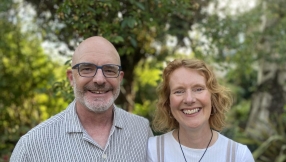All things come from thee
The earth is the Lord's and all that is in it, the world, and those who live in it; for he has founded it on the seas, and established it on the rivers. Who shall ascend the hill of the Lord? And who shall stand in his holy place? Those who have clean hands and pure hearts, who do not lift up their souls to what is false, and do not swear deceitfully. They will receive blessing from the Lord, and vindication from the God of their salvation.
Franciscans, following their founder St Francis, are well known for their love of nature, but it isn't a universal trait. I have one sister who prefers to appreciate creation through the windscreen of a car and another who isn't really happy unless her feet are on tarmac.
They would probably both say that people are more important than nature, and perhaps that's a good corrective to a form of 'nature worship' that ignores the place of humanity. Of course, ideally, we need to balance both these ingredients.
Francis didn't, in the end, love creation for its own sake, but because of his even greater love for the Creator. He saw signs of God's love and provision everywhere in creation, so appreciating nature led him to a greater appreciation of God, and his response to this appreciation was heartfelt worship.
He would have felt at home with the singers of the psalms in Old Testament times. Psalm 24, which was recited by the people at the beginning of their worship on the first day of the week, set the tone for all that followed. It may have been used at the procession of the ark of the covenant into the sanctuary (2 Samuel 6:12-15). It speaks of God as the universal Creator, very different from the local gods who had been worshipped in Jerusalem by the Jebusites, who lived there before it became the 'city of David'.
Those who are worthy to worship him are those who choose to act in accordance with God's will, recognizing his call on their obedience. They know that `the earth is the Lord's', not theirs, and base their actions on that realization.
Reflection
'All things come from thee, and of thine own do we give unto thee'
(Book of Common Prayer).
How does this attitude affect your worship?
Helen Julian CSF
[from New Daylight September - December 2007]













